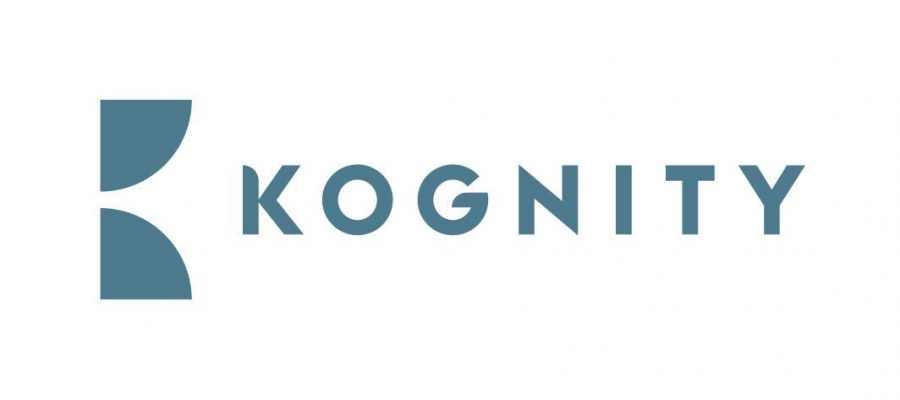Kognity at FIS: Student Responses
If you are a student at FIS currently pursuing an IB diploma, you are likely familiar with the software called “Kognity”. This learning tool was introduced to students in early January as “an online textbook and learning resource that offers comprehensive coverage of many Group 3-5 subjects. [Kognity] offers guidance in approaching exams and assessments as well as explaining key concepts and topics”. At first glance, this seems to be something that could be extremely useful for IB students, but just how useful is this software?
Before discussing this, it is important to gain some background information about the software and what it claims to offer. Originally created by two students in Sweden, the software was “designed to redefine the traditional textbook and supercharge the learning process as we know it”. The creators sought to create a more interesting and interactive learning resource than the ones they had been exposed to in their classroom. According to their website, “Kognity is now trusted in close to 20% of all IBDP schools around the world”.
Recently, FIS has joined those 20% of schools to provide their students with more opportunities to succeed. However, since Kognity is only available for the IB students, not everyone may be aware of what Kognity has to offer FIS students. The IBDP textbooks provided by Kognity include TOK (Theory of Knowledge), all Group 5 (Math) courses offered at FIS, most Group 4 (Natural Science) courses, and some Group 3 (Human Sciences) courses. For IB students, upon signing in one can see all textbooks available on Kognity which match with their courses. For example, one student’s Kognity account might include textbooks for Biology HL, Psychology SL, Math Analysis HL, and TOK. Each of these textbooks shows the topics covered in the course organized in alignment with the current prescribed IBDP course topics. Also available is a chat feature that allows for a direct line with a representative from Kognity about what is available and how to use the online resource. Other features include the ability to highlight and make notes which can be accessed separately from the book, strength tests that provide practice questions relating to any given topic, and any ongoing assignments from the student’s teacher.
At first glance then, it seems as though Kognity must be a valuable resource to students, both for classwork and review. Indeed, many students appreciate Kognity, with some Grade 11 students saying “the concept of it is great – a quick way to access very useful resources for your classes”, and that “I think it’s good for learning and can offer some material or examples which aren’t provided in class or through textbooks”. These examples highlight some of the main benefits of Kognity: it is a resource that can be accessed out of class and provide additional information on a subject.
It thus clearly has its various benefits to students, but what aspects are most beneficial. One 12th grader responded, saying “I find the short chapter multiple choice questions and the test your knowledge quite good”, referring to short sections of 3-5 questions which are presented at the end of every textbook section. Another Grade 12 agreed, stating “the answers are fully explained which is helpful”. Due to the wide range of features, Kognity seems to provide enough tools to be useful to a variety of learning styles. For example, short essay questions in fields like Psychology through the textbook alongside short five question quizzes in Biology.
However, many students were not fond of the way that Kognity has been implemented at FIS. Some feel that it should be more of an out of class resource; “I think it should be used as an optional help outside of class but some teachers are assigning a ton of stuff on the website expecting us to finish it all”. This comment on overuse by teachers is consistent with other students, who believe that “It’s a good learning platform but because we were rushed into it we didn’t get the opportunity to understand it as a secondary learning platform”. The general trend in student responses is that they recognize the opportunity Kognity provides them as a student resource, but there’s a disconnect between the students and the teachers. Many share the opinion that teachers are over eager in their use of Kognity, and using it as a source of assignment, when instead students prefer to use it as a tool for review and additional information.
As far as subject specifics, the consensus seems to be that Kognity is very good for the science subjects, with some responses being “I really like Kognity especially for chemistry because it gives me structure,” and “I think Kognity for science classes is extremely useful especially because of the organization and clear diagrams”. It is easy to see how another resource which breaks down complex scientific explanations in a new way would be useful, especially when the student is able to move through it at their own pace. The more straight-forward nature of these subjects lends itself to this format, as there is more certainty and less grey area than in the human sciences, for example.
Actually, the Human Sciences is the field in which students find Kognity the least useful; “For the other subjects such as the humanities and math, Kognity seems to be only an online textbook which is useful but not extraordinary”. Here, the nature of the subject does not lend itself as well to Kognity’s online platform. Students aren’t in need of another textbook to read which regurgitates the same information. What they are looking for is something which provides an alternate explanation or new perspective on what they’ve already learned in class to further their understanding. For whatever reason, the current material on Kognity doesn’t seem to have much to offer students that they don’t already have.
Overall, opinions are mixed but tend toward the positive side. The consensus can be well summarized in one students response; “I wouldn’t say it’s life-changing but it’s certainly a nice tool to have and is useful from time to time.” There is nothing new or extraordinary about an online textbook. Most if not all students still have physical textbooks that they often refer to in class and in studying. Teachers seem hesitant to abandon the old, in-hand version for this new technological alternative, and thus are having difficulty finding a balance between the two.
As our school environment begins to shift its focus towards sustainability, one would think that an online alternative to several kilos of paper per class would be embraced with fervor. Unfortunately, Kognity is not the ground-breaking technological advance some may be searching for. That is not to say that it is useless; I personally find it a very useful additional resource, especially when reviewing for exams, and I am confident the majority of students would agree with me. However, new things take time to develop and be understood. Until Kognity becomes a well-established resource (ideally one which covers all topics), it is likely to remain just a study tool, used intermittently by students and teachers.
——
Since the outbreak of COVID-19, it has become necessary to reevaluate Kognity through the lens of Distance Learning. In this new situation, Kognity has become a valuable resource for both students and teachers to maintain their studies. Teachers have been able to assign textbook work, review questions, and short answer prompts which can be approached more casually than quizzes while still providing essential exam preparation. For students, Kognity provides a new way to stay up to date with course content by providing us with additional information to fill any gaps left in our current isolated state. I strongly recommend those of you studying from home to consider using Kognity, especially with end of year exams fast approaching. It is essential that we do not fall behind during this time, and Kognity, as with any other resource, is one way to maintain our studies.










Marc H. • Mar 31, 2020 at
Dommage qu’il n’y ait pas de français offert par Kognity.